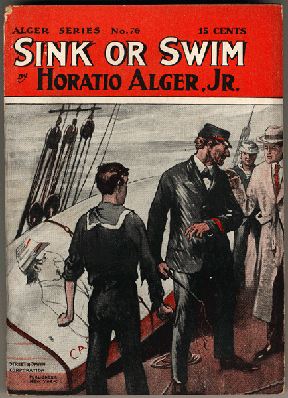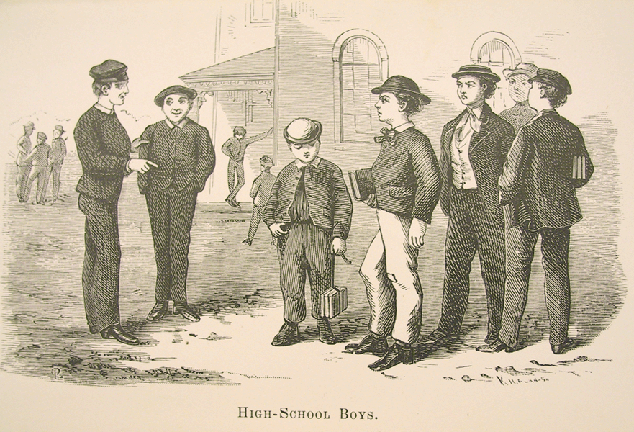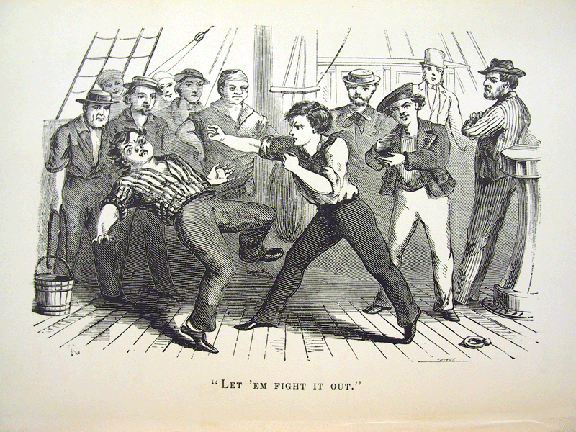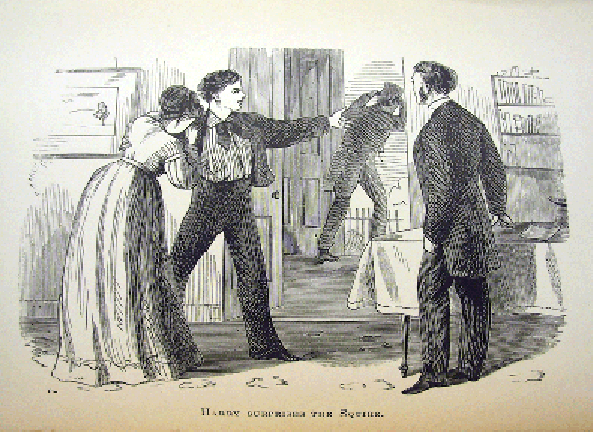Robbins Library Digital Projects Announcement: We are currently working on a large-scale migration of the Robbins Library Digital Projects to a new platform. This migration affects The Camelot Project, The Robin Hood Project, The Crusades Project, The Cinderella Bibliography, and Visualizing Chaucer.
While these resources will remain accessible during the course of migration, they will be static, with reduced functionality. They will not be updated during this time. We anticipate the migration project to be complete by Summer 2025.
If you have any questions or concerns, please contact us directly at robbins@ur.rochester.edu. We appreciate your understanding and patience.
While these resources will remain accessible during the course of migration, they will be static, with reduced functionality. They will not be updated during this time. We anticipate the migration project to be complete by Summer 2025.
If you have any questions or concerns, please contact us directly at robbins@ur.rochester.edu. We appreciate your understanding and patience.
Sink or Swim; or Harry Raymond's Resolve, Plot Summary
Sink or Swim; or Harry Raymond's Resolve, New York: A. K. Loring, 1870
 Harry Raymond, hero, is fifteen, and is described as a vigorous, mature, and aristocratic young man. He is the son of a carpenter, and lives on a limited income. Despite his hindrances, he is well liked, ambitious, and an excellent student. As a result, he is detested by the slightly built fop James Turner, son to miser Squire Turner. James is friendless save a single sycophant named Tom Barton. Early in the text, it is revealed that the Squire had initially proposed to Harry's mother and been turned down. As a result, he married a heartless woman for money, who died a few years earlier; the narrator adds that James turned out the way he did because of this loveless household. It is also revealed that Squire Turner now holds a four hundred dollar mortgage on the Raymond's house.
Harry Raymond, hero, is fifteen, and is described as a vigorous, mature, and aristocratic young man. He is the son of a carpenter, and lives on a limited income. Despite his hindrances, he is well liked, ambitious, and an excellent student. As a result, he is detested by the slightly built fop James Turner, son to miser Squire Turner. James is friendless save a single sycophant named Tom Barton. Early in the text, it is revealed that the Squire had initially proposed to Harry's mother and been turned down. As a result, he married a heartless woman for money, who died a few years earlier; the narrator adds that James turned out the way he did because of this loveless household. It is also revealed that Squire Turner now holds a four hundred dollar mortgage on the Raymond's house.
The first episode begins with Harry delivering a patriotic recitation after which the principal gives him a book of ancient and modern orators for being the best student of the year. Meanwhile, on his way home from work, Harry's father is hit by a train and killed. Harry and his mother are cast upon the breakers and fear for their home, now that they have lost their primary provider. Harry then remembers that his grandfather had received one hundred and sixty acres of land in Wisconsin for serving in the War of 1812. Unaware of the man's motivations, he gives the deed to Squire Turner to investigate its value. He asks the Squire also for one hundred dollars capital to start a merchant venture; the amount of the loan is added to their mortgage.
Initially, Harry does well in his job search: Jonas Porter, the local storekeeper, hires Harry to temporarily replace one of his assistants. However, as the position is temporary, Harry remains on the lookout for better prospects.
Next, Squire Turner discovers the land is occupied and therefore valuable. He plans to lie and keep the deed, using the poverty of the Raymonds as leverage to win Mrs. Raymond's hand in marriage. However, Harry, who witnesses the miser burning down an abandoned house he owns for the insurance, threatens the Squire's plans. Harry tells Turner that he will keep his information to himself so long as he doesn't claim the insurance.
 The chance arrival of villainous seafarer Hartley Brandon, Squire Turner's cousin, gives the Squire the idea to send Harry off to sea to prevent exposure of his crime. He writes a fraudulent letter to Harry promising a clerkship in New York City, an offer which Harry hopefully pursues. Once in the city, Harry is shown a fake office with false, expensive transactions, with a cohort of Hartley's acting like the manager. Hartley arrives and plays the part of a wealthy ship captain. He offers to show Harry his ship.
The chance arrival of villainous seafarer Hartley Brandon, Squire Turner's cousin, gives the Squire the idea to send Harry off to sea to prevent exposure of his crime. He writes a fraudulent letter to Harry promising a clerkship in New York City, an offer which Harry hopefully pursues. Once in the city, Harry is shown a fake office with false, expensive transactions, with a cohort of Hartley's acting like the manager. Hartley arrives and plays the part of a wealthy ship captain. He offers to show Harry his ship.
Once on board, Hartley gives Harry a sleeping potion. A series of transitions between activities on the deck and Harry's deep sleep develop the tension of the scene. Once he awakens, Harry finds himself one hundred and fifty miles from the city. Hartley reveals himself to be hard and cruel; he claims that Harry is a rebellious young relative who was committed to his care as an apprentice. Bereft of friends and familiar surroundings, Harry befriends the gentlemanly superintendent of cargo and nephew to the ship's employers, Mr. Weldon.
 The narrator then presents several tales of an escalating rivalry between Harry and villain Jack Rodman. First, Jack falsely accuses Harry of vandalizing the ship and mocking the captain. They settle the dispute like sailors: the two fight and Harry wins.
The narrator then presents several tales of an escalating rivalry between Harry and villain Jack Rodman. First, Jack falsely accuses Harry of vandalizing the ship and mocking the captain. They settle the dispute like sailors: the two fight and Harry wins.
Meanwhile, Squire Turner makes a pretense of helping Mrs. Raymond, loaning her additional money and finding her small jobs. He agrees to help her solve the mysterious disappearance of her son by going to the city and speaking with the police.
Back on the ship, Harry discovers a letter to Hartley from the Squire, which proves his involvement in the kidnapping. However, before he can use the letter, Rodman throws Harry overboard; Hartley, who is beginning to fear prosecution, refuses to help him. Despite the disappearance of the victim, Mr. Weldon proclaims his intent to have Hartley charged with kidnapping and murder.
Near death, Harry is saved by an Australian passenger ship bound for Melbourne. The thirteen year-old daughter of a wealthy London merchant, Maud Lindsay, sees him. Once on board, he tells his story. Maud, who is taken by his handsomeness, takes pity on him and asks her father to give him help. Once landing in Melbourne, Mr. Lindsay becomes a Patron, and gives Harry Raymond two hundred and fifty dollars to invest in gold mining. Harry takes up with John Bush, an older miner who offers his assistance in the fields. Although they initially have little success, John is shown the location of a gold nugget in an identical dream over three consecutive nights. Looking where he was shown, John finds a twenty-five pound gold nugget. He gives half to Harry outright, but also expresses his fears that he might die soon; if this happens, he says, Harry should have the whole nugget. That night, a villain named Henderson stabs John; although Harry shoots the criminal, he is too late to save his friend. Before he dies, John has three witnesses oversee the writing of a will in which he leaves everything he owns to Harry.
On his return to Melbourne, Harry finds himself the possessor of over ten thousand dollars. Maud discloses her love for Harry, and he is invited to a summer in England. He expresses his regrets that he must leave, but prepares to go home.
Meanwhile, the Squire discovers the Wisconsin land to be worth ten thousand dollars, but only after six months negotiation. Turner commits his agent to the negotiation, but only so he will not have to propose prematurely to Mrs. Raymond. Eventually, Mrs. Raymond agrees to marry, not out of love but for security. Turner rushes the wedding forward.
 Harry arrives at home in time to see his mother trying on her wedding dress. Infuriated, he tells her of the Squire's villainy. At the same time the Wisconsin attorney arrives. An unwitting accomplice to Turner's plots, he comes directly to Mrs. Raymond to tell her that he was able to end negotiations earlier than he expected. Squire Turner arrives, but too late: all is revealed and his plots fail completely.
Harry arrives at home in time to see his mother trying on her wedding dress. Infuriated, he tells her of the Squire's villainy. At the same time the Wisconsin attorney arrives. An unwitting accomplice to Turner's plots, he comes directly to Mrs. Raymond to tell her that he was able to end negotiations earlier than he expected. Squire Turner arrives, but too late: all is revealed and his plots fail completely.
In conclusion, Harry goes to England and is offered a job in Mr. Lindsay's New York office. He performs well and, as the narrator reveals, is expected to marry Maud very soon. James Turner got a job at the bank on his father's word and in time steals thirty thousand dollars, which the Squire is forced to pay. As a result, he has to move into the Raymond's old cottage, now empty since the Raymonds moved to the city.
 Harry Raymond, hero, is fifteen, and is described as a vigorous, mature, and aristocratic young man. He is the son of a carpenter, and lives on a limited income. Despite his hindrances, he is well liked, ambitious, and an excellent student. As a result, he is detested by the slightly built fop James Turner, son to miser Squire Turner. James is friendless save a single sycophant named Tom Barton. Early in the text, it is revealed that the Squire had initially proposed to Harry's mother and been turned down. As a result, he married a heartless woman for money, who died a few years earlier; the narrator adds that James turned out the way he did because of this loveless household. It is also revealed that Squire Turner now holds a four hundred dollar mortgage on the Raymond's house.
Harry Raymond, hero, is fifteen, and is described as a vigorous, mature, and aristocratic young man. He is the son of a carpenter, and lives on a limited income. Despite his hindrances, he is well liked, ambitious, and an excellent student. As a result, he is detested by the slightly built fop James Turner, son to miser Squire Turner. James is friendless save a single sycophant named Tom Barton. Early in the text, it is revealed that the Squire had initially proposed to Harry's mother and been turned down. As a result, he married a heartless woman for money, who died a few years earlier; the narrator adds that James turned out the way he did because of this loveless household. It is also revealed that Squire Turner now holds a four hundred dollar mortgage on the Raymond's house.The first episode begins with Harry delivering a patriotic recitation after which the principal gives him a book of ancient and modern orators for being the best student of the year. Meanwhile, on his way home from work, Harry's father is hit by a train and killed. Harry and his mother are cast upon the breakers and fear for their home, now that they have lost their primary provider. Harry then remembers that his grandfather had received one hundred and sixty acres of land in Wisconsin for serving in the War of 1812. Unaware of the man's motivations, he gives the deed to Squire Turner to investigate its value. He asks the Squire also for one hundred dollars capital to start a merchant venture; the amount of the loan is added to their mortgage.
Initially, Harry does well in his job search: Jonas Porter, the local storekeeper, hires Harry to temporarily replace one of his assistants. However, as the position is temporary, Harry remains on the lookout for better prospects.
Next, Squire Turner discovers the land is occupied and therefore valuable. He plans to lie and keep the deed, using the poverty of the Raymonds as leverage to win Mrs. Raymond's hand in marriage. However, Harry, who witnesses the miser burning down an abandoned house he owns for the insurance, threatens the Squire's plans. Harry tells Turner that he will keep his information to himself so long as he doesn't claim the insurance.
 The chance arrival of villainous seafarer Hartley Brandon, Squire Turner's cousin, gives the Squire the idea to send Harry off to sea to prevent exposure of his crime. He writes a fraudulent letter to Harry promising a clerkship in New York City, an offer which Harry hopefully pursues. Once in the city, Harry is shown a fake office with false, expensive transactions, with a cohort of Hartley's acting like the manager. Hartley arrives and plays the part of a wealthy ship captain. He offers to show Harry his ship.
The chance arrival of villainous seafarer Hartley Brandon, Squire Turner's cousin, gives the Squire the idea to send Harry off to sea to prevent exposure of his crime. He writes a fraudulent letter to Harry promising a clerkship in New York City, an offer which Harry hopefully pursues. Once in the city, Harry is shown a fake office with false, expensive transactions, with a cohort of Hartley's acting like the manager. Hartley arrives and plays the part of a wealthy ship captain. He offers to show Harry his ship.Once on board, Hartley gives Harry a sleeping potion. A series of transitions between activities on the deck and Harry's deep sleep develop the tension of the scene. Once he awakens, Harry finds himself one hundred and fifty miles from the city. Hartley reveals himself to be hard and cruel; he claims that Harry is a rebellious young relative who was committed to his care as an apprentice. Bereft of friends and familiar surroundings, Harry befriends the gentlemanly superintendent of cargo and nephew to the ship's employers, Mr. Weldon.
 The narrator then presents several tales of an escalating rivalry between Harry and villain Jack Rodman. First, Jack falsely accuses Harry of vandalizing the ship and mocking the captain. They settle the dispute like sailors: the two fight and Harry wins.
The narrator then presents several tales of an escalating rivalry between Harry and villain Jack Rodman. First, Jack falsely accuses Harry of vandalizing the ship and mocking the captain. They settle the dispute like sailors: the two fight and Harry wins.Meanwhile, Squire Turner makes a pretense of helping Mrs. Raymond, loaning her additional money and finding her small jobs. He agrees to help her solve the mysterious disappearance of her son by going to the city and speaking with the police.
Back on the ship, Harry discovers a letter to Hartley from the Squire, which proves his involvement in the kidnapping. However, before he can use the letter, Rodman throws Harry overboard; Hartley, who is beginning to fear prosecution, refuses to help him. Despite the disappearance of the victim, Mr. Weldon proclaims his intent to have Hartley charged with kidnapping and murder.
Near death, Harry is saved by an Australian passenger ship bound for Melbourne. The thirteen year-old daughter of a wealthy London merchant, Maud Lindsay, sees him. Once on board, he tells his story. Maud, who is taken by his handsomeness, takes pity on him and asks her father to give him help. Once landing in Melbourne, Mr. Lindsay becomes a Patron, and gives Harry Raymond two hundred and fifty dollars to invest in gold mining. Harry takes up with John Bush, an older miner who offers his assistance in the fields. Although they initially have little success, John is shown the location of a gold nugget in an identical dream over three consecutive nights. Looking where he was shown, John finds a twenty-five pound gold nugget. He gives half to Harry outright, but also expresses his fears that he might die soon; if this happens, he says, Harry should have the whole nugget. That night, a villain named Henderson stabs John; although Harry shoots the criminal, he is too late to save his friend. Before he dies, John has three witnesses oversee the writing of a will in which he leaves everything he owns to Harry.
On his return to Melbourne, Harry finds himself the possessor of over ten thousand dollars. Maud discloses her love for Harry, and he is invited to a summer in England. He expresses his regrets that he must leave, but prepares to go home.
Meanwhile, the Squire discovers the Wisconsin land to be worth ten thousand dollars, but only after six months negotiation. Turner commits his agent to the negotiation, but only so he will not have to propose prematurely to Mrs. Raymond. Eventually, Mrs. Raymond agrees to marry, not out of love but for security. Turner rushes the wedding forward.
 Harry arrives at home in time to see his mother trying on her wedding dress. Infuriated, he tells her of the Squire's villainy. At the same time the Wisconsin attorney arrives. An unwitting accomplice to Turner's plots, he comes directly to Mrs. Raymond to tell her that he was able to end negotiations earlier than he expected. Squire Turner arrives, but too late: all is revealed and his plots fail completely.
Harry arrives at home in time to see his mother trying on her wedding dress. Infuriated, he tells her of the Squire's villainy. At the same time the Wisconsin attorney arrives. An unwitting accomplice to Turner's plots, he comes directly to Mrs. Raymond to tell her that he was able to end negotiations earlier than he expected. Squire Turner arrives, but too late: all is revealed and his plots fail completely.In conclusion, Harry goes to England and is offered a job in Mr. Lindsay's New York office. He performs well and, as the narrator reveals, is expected to marry Maud very soon. James Turner got a job at the bank on his father's word and in time steals thirty thousand dollars, which the Squire is forced to pay. As a result, he has to move into the Raymond's old cottage, now empty since the Raymonds moved to the city.






